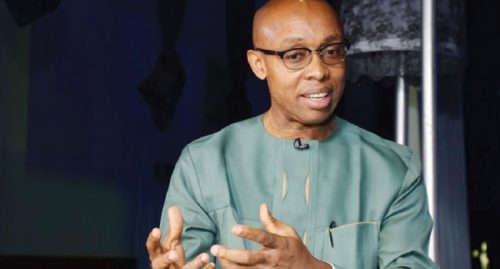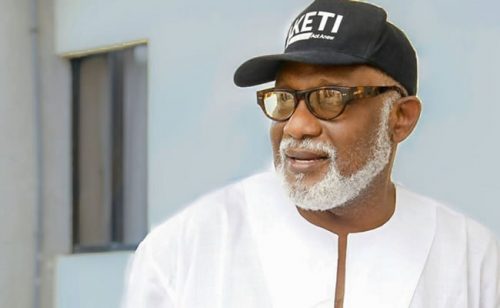How COVID-19, scarcity of funds is affecting TB services in Nigeria

The outbreak of COVID-19 pandemic has currently overtaken every other health issue throughout the world. In this report, DOOSUUR IWAMBE examined how the pandemic and scarcity of funds is affecting tuberculosis services in Nigeria.
Efforts to contain the COVID-19 pandemic have inadvertently affected tuberculosis (TB) programmes and other aspects of non-COVID healthcare, in Nigeria.
The linkages between COVID-19, TB and HIV are most pronounced in sub-Saharan Africa, where TB is the leading cause of death for people with HIV.
Nigeria remains one of the 30 countries globally with the highest burden of the disease.
Nigeria ranks first in Africa with the highest number of undetected cases with over 300,000 missing TB cases, which implies a large potential for continuous transmission of the disease in the country.
According to statistics from the United Nations health agency, 245,000 Nigerians die from tuberculosis (TB) and about 590,000 new cases occur (of these, around 140,000 are also HIV-positive).
Sadly, Nigeria over the last decade has been struggling with increasing incidences of tuberculosis. Prior to the outbreak of Coronavirus pandemic in Nigeria, TB stakeholders had achieved significant success.
However, the outbreak of COVID-19 supplanted everything—normal activities as those living in rural and hard to reach communities were the most hit.
The UN Sustainable Development Goals aim to end TB by 2030 but progress in the last few years has been slowed by poor funding and now by COVID-19.
The World Health Organisation, WHO in its 2020 global report had highlighted poor funding as a major challenge in reaching the 2022 TB target of treating 1.5 million people with multidrug-resistant TB or MDR TB by the end of 2022. The rise of MDR TB has posed another threat in the battle against the infectious disease.
The report also revealed that efforts have shifted from tackling TB cases to tracing people infected with COVID-19 as manpower, equipment and budgets are reassigned.
As a result, millions of tuberculosis diagnoses have been missed, and according to the WHO this is likely to result in 200,000 to 400,000 excess deaths from the disease in 2020 alone, with a further million new cases occurring every year after that for the next five years if urgent measures are not taken.
This week in Abuja, legislators, and key actors in the health sector gathered at the 4th Annual Legislative Summit on Health with the theme: “Universal Health Coverage (UHC) and Health Security (HS): two sides of a coin for an Efficient Health System”.
The gathering was to brainstorm on ideas and possible solutions that will help in reviving the sector.
They emphasized the need to ensure the attainment of Universal Health Coverage for all Nigerians.
The Vice president, Prof Yemi Osinbajo who lamented that the COVID-19 outbreak has dealt a big blow on TB services said, it had at the same time opened the eyes of the government to prepare for future pandemic.
According to the vice president, the pandemic exposed the vulnerability of the Nation’s health sector.
“Our experience in the last one year of COVID in Nigeria has exposed the vulnerability of our health system and the importance of preparedness, diagnosis and response mechanism. However, there are different understandings of what is meant by the concept of health security”, Osibanjo said .
The vice president who was represented by the minister of health, Dr. Osagie Ehanire affirms the commitment of President Muhammadu Buhari led government to achieve UHC.
“The Federal Ministry of Health is committed to the achievement of Universal Health Coverage for all citizens through the Basic Health Care Provision Fund (BHCPF) which has been revised to provide a much richer Basic Minimum Package of Health Services, to meet common healthcare needs of all citizens.
“With this fund, the poor and vulnerable will have access to essential health services without experiencing catastrophic out-of-pocket expenditure that often spells financial ruin to the average citizen”.
He urged participants to take a critical look at the issues and come up with recommendations that would complement ongoing efforts towards strengthening the health system.
On his part, Dr Tanko Sununu, Chairman, House of Representative Committee on Healthcare Services decried the battered state of the health care system in Nigeria.
“The Nigerian health care system has been tested and tried by COVID.
The legislative meeting became expedient following the COVID and its aftermath on the healthcare system”, he said.
While stressing that over 80 per cent of Nigerians seek healthcare services from their pocket, he added that the situation is not good enough for the country.
“Over 80% of Nigerians still procure healthcare out of pocket, the situation is not good for the country. It is contrary to the concept of Universal Health Coverage, which is why we needed to create an umbrella body where solutions can be developed through laws.
“At the National Assembly, we are amending a lot of laws to ensure that the health sector serves Nigerians the way it should.
The Act that establishes the NHIS has to be amended to ensure Nigerians get the opportunity to benefit from health insurance.
“However, this cannot happen unless the government matches words with action. In this case, the implementation of the 1% consolidated revenue as agreed by African countries in Abuja years ago.
Up till now, Nigeria does not allocate a quarter of that to healthcare. That needs to be achieved as even lesser countries already do so”, he added.
Also, Senator Yahaya Oloriegbe, Chairman, Senate Committee on Health in his remarks said, there was need to engage lawmakers across the nation on the NHIS, discuss maternal mortality rates, the nations’ health indices as well as government health expenditure.
“The National and state legislators came together because of the weak financial commitment in the health sector, the poor implementation of laws passed by the National and State lawmakers.
“There is a need to engage lawmakers across the nation on the NHIS, discuss maternal mortality rates, the nations’ health indices as well as government health expenditure.
“Legislators in the health sector need to interact and make decisions concerning healthcare to avert a further decline of health indices in the country”.
Senator Oloriegbe added that the summit was aimed at examining the state of the health system and its various challenges and said, through past summits, one of the achievements was accountability for the implementation of the Basic Health Care Provision Fund (BHCPF) guidelines in line with the National Health Act.











